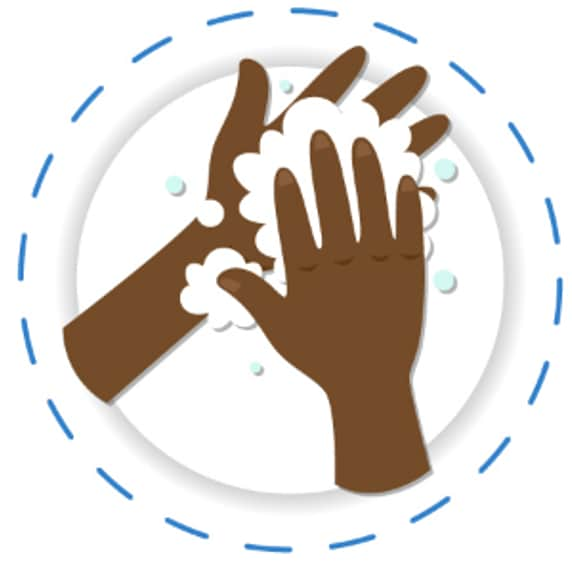Prevention and Treatment
Prevention

There is no vaccine or treatment that can prevent parvovirus B19 infection. You can protect yourself and others from parvovirus B19 by taking everyday preventive measures such as:
- Wash your hands often with soap and water
- Cover your mouth and nose when you cough or sneeze
- Avoid touching your eyes, nose, and mouth
- Avoid close contact with people who are sick
- Stay home when you are sick
It is important to follow standard infection control practices to prevent parvovirus B19 from spreading. For information about handwashing, see CDC’s Clean Hands Save Lives! or Hand Hygiene in Healthcare Settings | CDC.
Treatment
Parvovirus B19 infections are usually mild and will go away on their own. Children and adults who are otherwise healthy usually recover completely. Treatment usually involves relieving symptoms, such as fever, itching, and joint pain and swelling.
People who have complications (I.e., low blood count, chronic joint pain) from a parvovirus B19 infection and those who are infected while pregnant should see their healthcare provider to determine if additional clinical management is necessary.